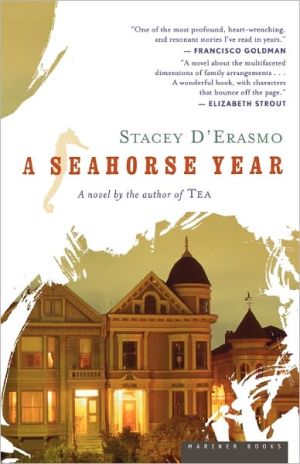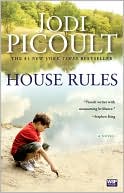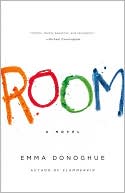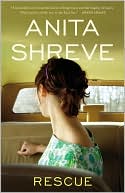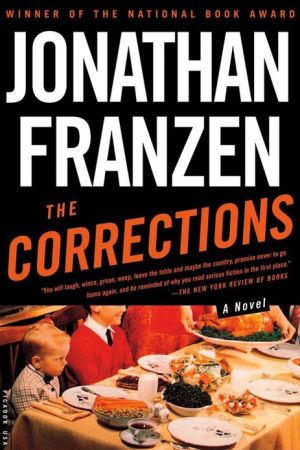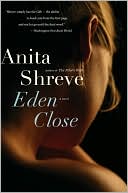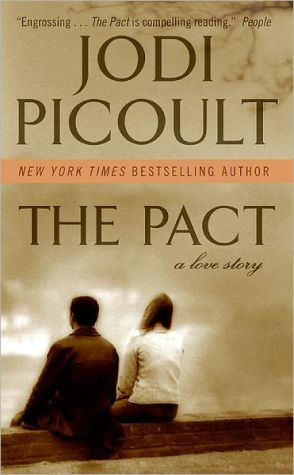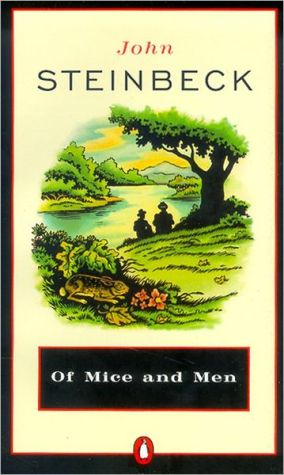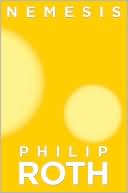Seahorse Year
In Stacey D’Erasmo’s acclaimed second novel, a quintessentially modern family is ultimately transformed by the emerging breakdown of their teenaged son, Christopher. When he disappears from his San Francisco home, his extended family comes together in a frantic search. But Christopher is in much more trouble than they know, and their attempts to support him and to save him will challenge their assumptions about themselves and one another.\ Exquisitely crafted, A Seahorse Year is an absorbing...
Search in google:
In Stacey D’Erasmo’s acclaimed second novel, a quintessentially modern family is ultimately transformed by the emerging breakdown of their teenaged son, Christopher. When he disappears from his San Francisco home, his extended family comes together in a frantic search. But Christopher is in much more trouble than they know, and their attempts to support him and to save him will challenge their assumptions about themselves and one another. Exquisitely crafted, A Seahorse Year is an absorbing read that explores the ways in which love moves us to actions that have both redemptive and disastrous consequences, sometimes in the same heartbeat. "A Seahorse Year compellingly explores love's connections and limits . . . [D'Erasmo] writes with a graceful, sometimes devastating directness, in clear, crisp phrases lined with subtle lyricism." -- Boston Globe"Beautiful, addictive . . . an elegant, glancing humor flecks the book . . . wonderfully observed ." -- Newsday"You could read Stacey D'Erasmo for the subtlety of her insights or the beauty of her language or for her tumbling, shifting arrangements of plot and characters . . . Or you could just open A Seahorse Year and be mesmerized." -- The AdvocateStacey D'Erasmo is the author of the novel Tea, which was selected as a New York Times Notable Book and a Book Sense 76 Pick. A Seahorse Year, her second novel, was a San Francisco Chronicle bestseller. She lives in New York City.Stacey D’Erasmo is the author of the novels Tea, (a New York Times Notable Book of the Year); and A Seahorse Year, which was named a Best Book of the Year by the San Francisco Chronicle and Newsday, and won a Lambda Literary Award. She was a Stegner Fellow in Fiction from 1995-1997. Her essays, features, and reviews have appeared in the New York Times Magazine, the New York Times Book Review, and Ploughshares. She is currently an assistant professor of writing at Columbia University. The New York Times - Margot LiveseyLike Byatt and Shields, D'Erasmo is too interested in conveying the texture of lived experience to reach a neat conclusion. Certain aspects of her characters remain properly mysterious, and the novel's ending leaves them, as it should, in the midst of their lives. But what is abundantly clear throughout is D'Erasmo's talent and intelligence. A Seahorse Year succeeds in being both deeply satisfying and quietly subversive.
Hal walks uphill. My son is mad, he\ thinks, and\ turns a corner, passing a coffeehouse\ where three women\ in sweatshirts sit at an outdoor table.\ It's cool, gray, and\ damp: summer in San Francisco.\ \ "Hey, Hal," says one, a client. Hal waves.\ \ "Yeah, he's great," she says to a friend\ as he walks on. "He got\ me back a thousand dollars last year."\ \ My son is mad, thinks Hal. I am dying.\ He almost stops to call\ Nan and say that — I am dying, I am\ dying — but he knows that\ she will reply, calmly, "You are not\ dying, Hal. Did you talk to the\ police today?"\ \ Sometimes he just can't handle her — her\ persistence, her\ smooth face, the way she occupies any\ chair as if she has just built\ it herself out of a tree she felled with\ her little saw. I am lost, he\ thinks, I am sure that I'm dying, my son\ is mad, and his mother\ won't admit that she can't carry him by\ herself.\ \ Hal walks on. No one has found\ Christopher yet, no one has\ called to say that they've seen him, no\ one — not even Nan — has\ come in from the desert or the mountains\ carrying him. Hal\ looks up at the sky, as if Christopher\ might appear there, but\ the sky is blankly bluish gray. Back in\ Christopher's room in Hal's\ house, Christopher's saltwater fish tank\ is burbling to itself. Expensive\ fish circle through the carefully tended\ water: a lionfish,\ a snowflake eel, three temperamental\ tangs, and a bamboo cat\ shark who spends most of its timelying\ on the bottom of the\ tank, looking malevolent and morose.\ Since Christopher has been\ gone, it has fallen to Hal to take care\ of Christopher's fish. This\ morning, Hal noticed that the tank\ seemed warm and the fish\ sluggish, that they were swimming\ slowly, like a carousel winding\ down. Hal felt a panicky rush. He\ believes in omens and portents\ and signs of all kinds. He immediately\ set out for the aquarium\ store, the good one in Noe Valley where\ he had opened an account\ for Christopher. He thought he might see\ an omen or sign\ on the way, but so far there has been\ nothing, nothing at all, but\ that random, friendly hello and miles of\ sky without a break.\ \ Hal looks down again, at the street. A\ not uninteresting man\ with a squashy nose looks Hal's way, but\ Hal doesn't look back.\ Hal, walking uphill, is equally certain\ that Christopher is alive\ and that he is dead. Either way, he is\ certain that it will fall to him\ to carry Christopher — who, at sixteen,\ is much too heavy and tall\ now to be carried even by Hal — in the end.\ \ Nan works in her garden. It is a long,\ narrow plot of land containing\ four square beds of flowers outlined by\ planks of silvered\ wood; around the beds is grass. Around\ the garden is a fence, also\ silvered. Trumpet vines tumble wantonly\ over the fence toward\ earth. Midway down the garden is a\ slender, deep purple, flowering\ plum that has never flowered or plummed\ but maintains a\ hopeful, leafy look. A few feet away\ from the plum tree, nestled in\ some tall grasses and a few wayward\ daisies, is the stone head of\ Sor Juana. Nan pulls a few weeds from\ around the pansies. She\ chews on a shred of chive. Her right hip\ aches, a tedious reminder\ of being forty-five, of the car accident\ at eighteen that broke her\ hip in the first place, and of the doctor\ inMexico who didn't set it\ right. She picked up the statue during\ that trip, before she even\ knew who Sor Juana was or had a garden\ to put her in. She just\ liked Sor Juana's melancholy, downturned\ stone eyes, her stone\ wimple; feeling like Orpheus, Nan lugged\ her back over the border\ on the bus, placing her heavy stone head\ on the next seat.\ \ Nan's body remembers everything and\ retells it to her from time\ to time whether she wants to hear it or\ not. She taps a loose end\ of a plank into place with her spade.\ \ Marina said, over dinner the night\ before, "He's all right. I feel\ that he's all right."\ \ Nan had stared at her plate, willing\ herself not to think. She\ found her hand closing and willed her\ fingers to open. She willed\ herself not to say, "You couldn't\ possibly feel him. You didn't bear\ him or raise him." She put her plate in\ the sink and walked outside\ to stand in the dark garden. But what\ was worse was the fact\ that Nan didn't feel anything either.\ She had no idea at all where\ Christopher could be. No breeze stirred\ the dark leaves.\ \ Today the garden is calm. Nan stands up,\ holding the spade:\ a hopeless, foolish tool against the\ wide world. She thinks how\ foolish she herself must look, a short\ woman with short, graystreaked\ hair, in dirty jeans, armed with nothing\ but a spade. She\ sighs, dirty fingers clenched around the\ dirty spade. She closes\ her eyes for a minute, thinks\ ChristopherChristopherChristopher,\ then opens them again. The garden\ remains empty.\ \ Nan leans down to pick a few small green\ tomatoes for the\ windowsill. She tugs at a weed. Her hip\ complains. The cool,\ damp air washes over her. She tries to\ feel comforted by its purity.\ She listens intently for some sound or\ cry, perhaps from a great\ distance, but the only sound is the\ chink of her spade in the earth.\ Marina paints the branch of a tree. The\ light in her studio is\ muted. The studio is in a converted\ church in the Mission; now\ it's a church of art. She works in the\ choir room, a boxy space with\ rickety windows and the ghost of the\ smell of wet wool. It's a\ mess: scattered around the room are,\ among other things, her bicycle,\ canvases in various states of use, work\ boots, cans of powder\ paint and acrylic, squashed tubes of oil\ paint, archival glue\ and Elmer's glue, a jigsaw, a drill,\ sketchbooks, a box of old snapshots\ bought at a flea market and another two\ or three overflowing\ with cut-up old books and magazines from\ her collage period,\ a hunk of dried-out clay, a kid's bead\ loom in a box that says\ american indian loom, a ruler, a bunch\ of mismatched baby\ shoes, a sculpture leaning against one\ wall — an exchange with\ another artist — which looks something\ like a side of cured beef.\ \ A big plastic bucket is filled with\ clipped pictures of nineteenth-century\ valentines. Hearts and the empty shapes\ where hearts\ used to be are tangled together. The\ bucket sits under a table\ with curlicue white metal legs and a\ glass top, meant to be patio\ furniture; the glass is covered with\ swirls and blobs and streaks\ of paint, years of it in a multicolored,\ perpetual storm. Tacked\ onto the wall next to Marina's worktable\ is a yellowed postcard of\ an Agnes Martin painting: rows of white\ lines like stitches traced\ vertically across a slate background,\ determined and lonely and\ earthy. When she first met Nan, she\ thought Nan was like that\ painting.\ \ Scotch-taped to the upper frame of one\ window are three dried\ seahorses, a gift from Christopher: one,\ two, three little rocking\ creatures with fixed rococo stares. There\ is a rent notice lying\ on the floor near the door, along with a\ note from Turner, a\ printmaker who has the studio directly\ beneath Marina's. The\ note says, The cow Roberta won a Prix de\ Rome. She's a cow. COW.\ \ Marina can hear Turner below her,\ laughing and talking on his\ cell phone. Through the old porous\ floorboards, she can smell the\ etching acid he uses.\ \ Marina dots the tip of the branch. It's\ okay. Today the tree is\ okay, not so bad, she won't have to\ scrape it off and start again.\ Probably. She looks at it, wrapping a\ lock of hair around her\ finger: a schoolgirl habit, though this\ schoolgirl has a head of silver\ hair cut in a bob that just grazes the\ nape of her long neck.\ \ Marina is only thirty-eight, but her\ hair has been silver since she\ was twenty-five. She would no more have\ bothered to dye it than\ she would have bothered to iron a\ wrinkled shirt or mend a\ sweater with a hole. She has always\ preferred a life of casual accretion.\ In fact, she believes in it, almost as\ an ars poetica: what\ accretes naturally always turns out to\ be exactly what's needed.\ Painting should be like riding a bike\ with no hands, a mixture of\ velocity and trust.\ \ For instance, this tree that she's been\ making for the last seven\ years: it hasn't been that well\ received, but she has persevered for\ reasons she can't quite explain. She's\ made the tree big; she's made\ the tree small; she's made the tree in\ oil, watercolor, gouache, collage,\ tinfoil, Polaroid, and acrylic; she's\ repeated identical trees in\ suspiciously regular rows on a single\ canvas; once she made an\ entire forest of trees from fabric\ remnants. This is a tree in oil,\ dense and telegraphic. She might have to\ scrape it off after all.\ There's another tree, a tree she can see\ clearly in her mind's eye,\ that will not fail, as this one suddenly\ seems in imminent danger\ of doing. The tree at this point has\ become fairly representational,\ close to the tree she drew over and over\ again when she was ten.\ \ It's a leafy, spreading, eastern sort of\ tree that seems quite specific,\ though if one were to look at it more\ closely, one would see that it\ isn't actually any particular organic\ species at all. Its branches\ bend strangely; its leaves are an\ uncanny shape. There are suggestions\ of faces in the bark. When she first drew\ it as a child in Los\ Angeles, it was a tree she had never\ seen, except in a dream. In the\ dream, it was the most beautiful tree in\ the world. She woke up\ needing to draw it. That was all she\ knew. In many ways, she\ thinks it may be all she still knows.\ She begins on another branch,\ with guarded hope.\ \ When the wind blows, the rickety window\ shakes and the three\ seahorses, loose in their old tape, rap\ very faintly on the glass. It is,\ to Marina, an unbearable sound. In one\ corner of her studio, a\ boom box splattered with paint rests\ next to a wooden tray full of\ a random collection of CDs: some opera,\ some Depeche Mode, a\ boxed set of Patti Smith with crushed\ corners. She doesn't turn\ on the boom box. She listens hard for\ the tiny, unbearable rattle\ of the seahorses. It seems important.\ \ Christopher has been gone seven days.\ Day by day, the time\ accretes with other events, events of\ much greater magnitude that\ have affected many more people: an\ earthquake in El Salvador; a\ change of power in Israel; the rise of\ the temperature of the earth\ by a fraction of a degree. Those events,\ however, are bearable.\ What is not bearable is the silence,\ punctuated by that tiny, almost\ imperceptible rapping. How will they\ survive this? Marina has no\ idea. A leaf appears, then another.\ \ Nan parts Marina's thighs with her\ hands, buries her hands, her\ tongue, in Marina, as desperately as if\ this is their last fuck on\ earth. Marina shakes, but doesn't come\ yet. She pulls Nan up beside\ her in the twisted sheets. Nan is\ sweating and crying at the\ same time, and her lips feel rough and\ hot. Marina kisses Nan\ with deep, purposeful kisses, wanting to\ draw the poison out, but\ they are both poisoned, so she can't.\ They can only pass the poison\ between them. Nan reaches into the\ drawer of the night table\ and pulls out the old cracked maroon\ cock, slides it up inside Marina,\ whose glue- and paint-stained shirt is\ still half-buttoned on\ her body. Her silver hair is snarled and\ sweaty. Nan says into Marina's\ ear, "Give it here," and when Marina\ does it's like a wall falling\ down and on the other side of the wall\ is a rushing wind.\ \ Marina starts to cry. Nan sits up,\ running the heels of her hands\ through her hair. She looks at the clock\ and sees that only twentyone\ minutes have gone by.\ \ Somewhere near Denver, Christopher\ hitches a ride with a truck\ heading south.\ \ Copyright © 2004 by Stacey D'Erasmo.\ Reprinted by permission of Houghton \ Mifflin Company.
\ Margot LiveseyLike Byatt and Shields, D'Erasmo is too interested in conveying the texture of lived experience to reach a neat conclusion. Certain aspects of her characters remain properly mysterious, and the novel's ending leaves them, as it should, in the midst of their lives. But what is abundantly clear throughout is D'Erasmo's talent and intelligence. A Seahorse Year succeeds in being both deeply satisfying and quietly subversive. \ — The New York Times\ \ \ \ \ Susan CollThe present-tense voicing and quick splicing between scenes lend a nice sense of urgency to the narrative. As Hal heads to visit Christopher in a psychiatric institute, he muses that the purpose of his life is "this exact drive, on this exact day, at this exact moment." One can almost imagine Virginia Woolf's Mrs. Dalloway reflecting on a certain moment in June.\ — The Washington Post\ \ \ Publishers WeeklyD'Erasmo's quiet, penetrating second novel (after Tea) follows a San Francisco family coping with a 16-year-old son's mental illness. Christopher's mom, Nan, is in a long-term relationship with girlfriend Marina, who's like another mom; his sperm donor dad, Hal, is gay, a dancer-turned-CPA. But despite the unconventional setup, his parents sometimes act with the confused stiffness of the most traditional of families. When Christopher runs away the first time, Nan is distraught; she explains that her son had "a freak-out, we think. He wouldn't wash, he was angry all the time, he was saying all sorts of strange stuff, and he just, he just wasn't Christopher." After Christopher is fetched home, he's diagnosed with schizophrenia; Nan, meanwhile, is grasping at connection, and Marina's sleeping with someone else. D'Erasmo portrays Christopher's strange thoughts with beauty and insight; his misguided girlfriend, Tamara, is also tenderly, convincingly rendered. The family's unsettled state adds to the complications, as Christopher nearly kills himself and then escapes, with Tamara's help, from a mental health facility. As D'Erasmo shifts between different points of view-distinct, but united by her lush prose-she paints a portrait of illness, but also of growth and change. 5-city author tour. Agent, Jennifer Carlson. (July 7) Forecast: The book's non-traditional family set-up and effortless prose will remind readers of Michael Cunningham's early novels, and should help build D'Erasmo's readership. Copyright 2004 Reed Business Information.\ \ \ \ \ Library JournalIn her second novel (after Tea), D'Erasmo explores how a supposedly unconventional family is no different from a traditional one when confronted with difficult choices. Set in contemporary San Francisco, the story centers on Nan, an ex-Texan bookseller; Hal, an accountant who was once a local celebrity in a campy gay troupe; their teenaged son, Christopher; and Nan's artist lover, Marina. The balancing acts that define their lives are challenged when Christopher is diagnosed with a serious mental illness and disappears into the northern California hills with his girlfriend. Alternating perspectives and controlled, nuanced writing bring depth and compassion to each character, illuminating their flaws and contradictions to full effect. While this is a strong domestic drama, it loses momentum toward the end and is weakest in its depiction of teenage angst (e.g., the repetitive references to P.J. Harvey run thin). But the sympathetically drawn characters and brilliant moments in her writing make D'Erasmo an author to watch. Recommended for most fiction collections. [Previewed in Prepub Alert, LJ 3/15/04.]-Misha Stone, Seattle P.L. Copyright 2004 Reed Business Information.\ \ \ \ \ Kirkus ReviewsA typically atypical San Francisco family (two gay mothers and a gay father) restructure their lives after their son is diagnosed with schizophrenia. Sixteen-year-old Chris's condition has just emerged. He's missing, and his biological mother Nan and father Hal are beside themselves. Behind her matter-of-fact exterior, Nan is a fragile soul whose unhappy, abused childhood has led her to a passionate need for family and home. Although Hal was literally a sperm donor-he and Nan never actually had sex together-he has been an intensely involved father. Rounding out the picture is Marina, the artist who lives with and deeply loves Nan but is currently having an affair with an art student. After the first harrowing scenes of his disappearance, Chris is found and diagnosed, but the emotional roller coaster ride has just begun. Hal, once a dancer in a group resembling the Coquettes of the '60s but now a CPA, pays for an expensive clinic that places Chris on a semi-experimental drug protocol that calms him. When he comes home, fat and docile, he resumes his relationship with his girlfriend Tamara, and the adults want to believe he's better. But after a nearly fatal disaster at the beach, he enters another facility, though Tamara, in a misguided act of obsessive adolescent love, helps him escape. Chris isn't able to cope, and another near disaster occurs before the teenagers are found. Meanwhile, Nan and Marina's relationship crumbles while Hal finds love with a corporate mediator (who happens to be black). Chris goes on to a group home, a job, a life, imperfect but his own. Second-novelist D'Erasmo (Tea, 2000) creates a fully realized world of politically correct yet complex characters andsituations, but a tone of self-important seriousness that goes beyond the demands of the admittedly serious situation may well get on readers' nerves. Iris Murdoch-lite but without Murdoch's light touch. Agent: Jennifer Carlson/Dunow Carlson\ \
